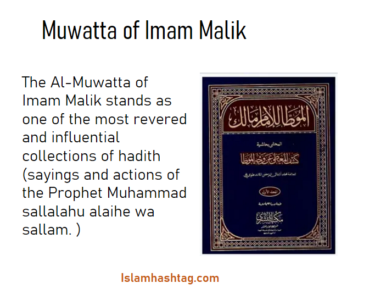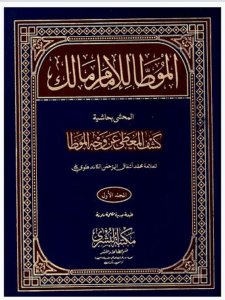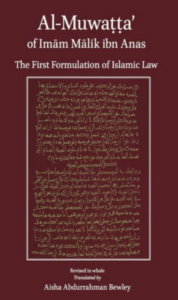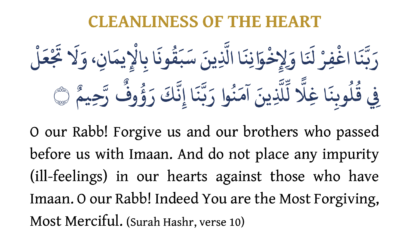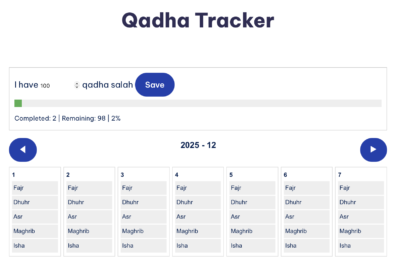About Muwatta of Imam Malik:
Who was Imam Malik? Imam Malik biography in short:
Imam Malik ibn Anas, full name Abu Abdullah Malik ibn Anas ibn Malik ibn Abi ‘Amir al-Asbahi al-Himyari, was a towering figure in Islamic scholarship. He was born in the year 711 CE and passed away in 795 CE. His lifetime coincided with a pivotal era in Islamic history, marked by the consolidation of Islamic jurisprudence and the preservation of the Prophet Muhammad’s teachings.
Imam Malik’s passion for knowledge ignited at a young age, and he dedicated himself to the pursuit of sacred learning. His quest for knowledge led him to the luminaries of his time, particularly the scholars of Madinah, which was a bastion of Islamic scholarship. Malik’s reputation for knowledge soon reached its zenith, and he became widely recognized as one of the foremost authorities of his era.
One of Imam Malik’s distinctive qualities was his meticulousness and intellectual rigor. Before issuing legal opinions (fatwas), he would consult with other scholars and carefully consider differing viewpoints. His commitment to scholarly integrity and upholding the truth earned him the respect of his contemporaries.
Despite facing adversity and the injustices of rulers, Imam Malik remained steadfast in his dedication to disseminating knowledge and preserving the traditions of the Prophet Muhammad. He imparted valuable lessons to his students, emphasizing the importance of refraining from engaging in matters beyond their expertise.
Imam Malik’s illustrious lineage of teachers contributed significantly to his formidable knowledge. Among his revered teachers were luminaries such as Abu Bakr al-Asamm, Nafi’ al-Madani, Zaid bin Aslam, Ibn Shihab al-Zuhri, Abdullah bin Dinar, Rabi’ah bin Abi Abd al-Rahman, and Zubair bin al-Awwam, to name just a few.
Muwatta of Imam Malik
The Al-Muwatta of Imam Malik stands as one of the most revered and influential collections of hadith (sayings and actions of the Prophet Muhammad sallalahu alaihe wa sallam. Due to its profound significance for Muslims, it has attracted the attention of scholars throughout history who sought to delve deeper into its contents, elucidate its meanings, and extract jurisprudential insights. These endeavors have resulted in a plethora of commentaries, which, while primarily authored by adherents of the Maliki school of thought, have found recognition and admiration across various Islamic traditions.
“Al-Muwatta” is one of the great collections of Islamic jurisprudence. It is a book compiled by the esteemed Imam Malik, containing a collection of hadiths (sayings and actions of the Prophet Muhammad), narrations from the Companions, and the generation that followed them (Tabi’in). Additionally, it includes Imam Malik’s own opinions and legal rulings (fatwas).
The name “Al-Muwatta” means “the well-trodden path” because Imam Malik prepared and organized it to be easily accessible and followed by the people.
It is narrated that Imam Malik, may Allah have mercy on him, said, “I presented my book to seventy scholars of Medina, and each of them criticized it in some way. So, I named it ‘Al-Muwatta,’ which means ‘the well-trodden path.'”
Read Muwatta of Imam Malik
you can download Muwatta pdf : Muwatta
Why was the Muwatta compiled?
The reason why it was compiled: Ibn ‘Abd al-Barr (may Allah have mercy on him) stated in al-Istidhkar (1/168) that Abu Ja’far al-Mansur said to Imam Malik: “O Malik, make a book for the people that I can make them follow, for there is no one today who is more knowledgeable than you.” Imam Malik responded to his request, but he refused to force all the people to adhere to it.”
The number of transmissions in the Muwatta
Imam Malik read the Muwatta to people for forty years, adding to it, taking away from it and improving it. So his students heard it from him or read it to him during that time. So the reports in al-Muwatta are many and varied because of what the Imam did of editing his book. Some of his students narrated from him before it was edited, some during the process, and some at the end of his life. Some of them transmitted it in full whilst others narrated part of it. So a number of transmissions of the Muwatta became well known, the most important of which are:
- The transmission of Yahya ibn Yahya al-Masmudi al-Laythi (234 AH). This is the most famous transmission from Imam Malik, and most of the scholars based their commentaries on it.
- The transmission of Abu Mus’ab al-Zuhri, which is distinguished by the additions contained therein. It is the last version transmitted from Malik and it is still in circulation among the scholars.
- The transmission of ‘Abd-Allah ibn Maslamah al-Qa’nabi (221 AH). This is the largest version of the Muwatta, and ‘Abd-Allah is one of the soundest of people with regard to the Muwatta, according to Ibn Ma’in, al-Nasai and Ibn al-Madini.
- The transmission of Muhammad ibn al-Hasan al-Shaybani.
- The transmission of ‘Abd-Allah ibn Salamah al-Fahri al-Masri.
And there are many others. Shaykh Muhammad Fuad ‘Abd al-Baqi (may Allah have mercy on him) spoke about the narrators of the Muwatta and discussed fourteen versions of it, in his introduction to the edition of the Muwatta that he edited (pp. 6-16).
These versions differ in the order of the books and chapters, and in the number of marfu’, mursal, and mawquf hadiths. The wording of the hadiths also differs greatly.
Is the Muwatta Of Imam Malik authentic?
The conditions he followed in his book are among the most reliable and strongest of conditions. He followed a method of erring on the side of caution and choosing only sound reports.
Al-Shafi`i (may Allah have mercy on him) said: There is nothing on earth after the Book of Allah that is more correct than the Muwatta of Malik ibn Anas.
It was narrated that al-Rabi’ said: I heard al-Shafi`i say: If Malik was uncertain about a hadith he would reject it altogether.
Sufyan ibn ‘Uyaynah said: May Allah have mercy on Malik, how strict he was in his evaluation of men (narrators of hadith). (Al-Istidhkar, 1/166); al-Tamhid, 1/68)
Hence you will find that many of the isnads of Malik are of the highest standard of sahih. Because of this, the two Shaykhs al-Bukhari and Muslim narrated most of his hadiths in their books.
Note: Imam al-Shafi`i made the comment quoted above before al-Bukhari and Muslim wrote their books, as was noted by al-Hafiz Ibn Kathir (may Allah have mercy on him) in his summary of ‘Ulum al-Hadith (pp. 24-25).
Why was the Muwatta compiled?
The reason for its compilation: Ibn Abd al-Barr, may Allah have mercy on him, mentioned in his book “Al-Istidhkar” that Abu Ja’far al-Mansur said to Imam Malik, “O Malik! Create a book for the people that they can rely on. No one today is more knowledgeable than you!” Imam Malik responded to his request but did not impose it on everyone.
How many hadiths in the Muwatta
The number of hadiths in “Al-Muwatta” varies depending on the narration and how scholars counted them. Some scholars considered every statement of the Companions or Tabi’in as a separate hadith, while others did not include them in the count. The most commonly referenced count for hadiths in “Al-Muwatta” is:
- In Yahya al-Laythi’s narration: 1,942 hadiths, including both the narrated (marfu’) and attributed (mawquf) statements.
- In Abu Musab al-Zuhri’s narration: 3,069 hadiths, including everything, even the statements of Imam Malik himself.
Method of the compilation of the Muwatta
Imam Malik followed the methodology of the scholars of his time by combining hadith with the opinions of the Companions and the generation after them (Tabi’in). He also included the practical actions of the people of Medina in his book. Therefore, “Al-Muwatta” serves as both a book of jurisprudence and hadith, providing guidance in matters of both law and practice.
Imam Malik included 613 narrations from the Companions and 285 statements from the Tabi’in in his book. He would often begin a chapter with a hadith and follow it with the opinions of scholars or the actions of the people of Medina. Some chapters do not contain narrated hadiths but instead feature the opinions of jurists and the practices of the people of Medina.
“Al-Muwatta” primarily focuses on matters of jurisprudence, ethics, and daily life, without delving into topics like theology, asceticism, eschatology, stories, or Quranic interpretation.
Muwatta commentary
Yahya al-Laithi’s version of Al-Muwatta alone has engendered approximately a hundred commentaries. This attests to the enduring significance and scholarly appeal of Imam Malik’s magnum opus.
- Al Tamhid by Yusuf ibn Abd al-Barr: Al Tamhid is an insightful commentary organized according to the narrators from whom Imam Malik narrates. It meticulously explores the biographical information of each narrator in the chain of transmission. This commentary serves as a valuable resource for understanding the reliability and context of the hadiths in Al-Muwatta.
- Al-Istidhkar, also by Ibn Abd al-Barr: Al-Istidhkar, authored by Ibn Abd al-Barr, provides a legal exegesis of the hadiths contained in Al-Muwatta. It offers an in-depth exploration of the legal implications and applications of the hadiths. Notably, this work was written after Al Tamhid, as indicated by the author himself, and it reflects the author’s meticulous revisions to both commentaries.
- Kitab al-Qabas fi Sharh Muwatta Malik ibn Anas by Abu Bakr ibn al-Arabi: Abu Bakr ibn al-Arabi’s commentary on Al-Muwatta is highly regarded as one of the finest ever produced. It offers profound insights and explanations, shedding light on the nuances of Imam Malik’s work.
- Al-Suyuti’s Commentary: Despite being a follower of the Shafi’i school, Al-Suyuti authored a concise commentary on Al-Muwatta. His commentary serves as a testament to the broad appeal and significance of Imam Malik’s work beyond the confines of the Maliki school.
- Al-Musaffa Sharh al-Muwatta by Shah Wali Allah Dahlawi: Shah Waliullah, a prominent Islamic scholar, composed a commentary on Al-Muwatta in Persian, known as Al-Musaffa Sharh al-Muwatta. Additionally, he wrote another commentary in Urdu, highlighting the enduring relevance of Al-Muwatta in the Indian subcontinent.
- Al-Muntaqâ sharh al-Muwatta by Abu al-Walid al-Baji: Abu al-Walid al-Baji, an Andalusian Malikite Qadi, produced a comprehensive commentary on Al-Muwatta titled Al-Muntaqâ sharh al-Muwatta. This commentary has two versions: al-Istifa’ and its abridgment al-Muntaqa, each offering unique insights into Imam Malik’s work.
- Awjāz-ul-Masālik ilá Muwattā‘ Imām Mālik by Muhammad Zakariya al-Kandahlawi: This commentary, authored by the renowned scholar Muhammad Zakariya al-Kandahlawi, is significant for its unique perspective. Despite being a Hanafi scholar, Muhammad Zakariya’s commentary is so comprehensive and well-structured that it earned praise from Maliki scholars who remarked, “Qad Hannafal Muwatta” – meaning that the Muwatta now appeared to be a Hanafi book due to the brilliance of the commentary.
- Sharh Muwatta al-Malik by Muhammad al-Zurqani: Muhammad al-Zurqani’s commentary on Al-Muwatta draws heavily from three other commentaries: Al Tamhid and Al Istidhkar by Yusuf ibn Abd al Barr, as well as Al-Muntaqa of Abu al-Walid al-Baji. This comprehensive approach provides a multifaceted understanding of Imam Malik’s work.
- Al-Imla’ fi Sharh al-Muwatta by Ibn Hazm: Ibn Hazm, a prominent Andalusian scholar, penned an extensive commentary on Al-Muwatta. Spanning a thousand folios, this work delves into the intricacies of the text, offering detailed insights and interpretations.
- Sharh Minhaaj by Subki: Subki, a renowned Islamic jurist, contributed a commentary known as Sharh Minhaaj, which serves as an additional resource for those seeking a deeper understanding of Al-Muwatta.
- Sharh Muwatta by Ali al-Qari: Ali al-Qari’s commentary adds to the diverse array of exegeses on Al-Muwatta, providing a fresh perspective on Imam Malik’s timeless compilation.
Reference:
- wikipedia
- https://islamqa.info/ar/answers/
Discover more from Islam Hashtag
Subscribe to get the latest posts sent to your email.

